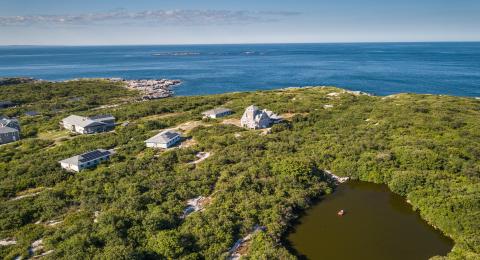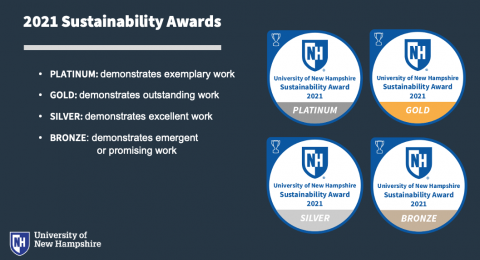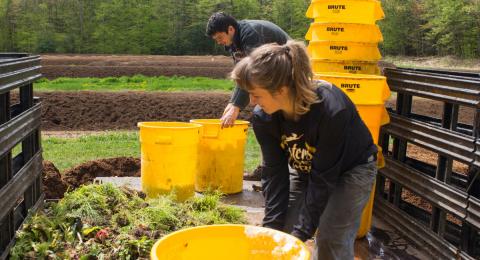Research at UNH furthers sustainability science, scholarship and creativity through critical conversations and collaborations across traditional discipline boundaries. Our research excellence reaches from the depths of our oceans to the edge of our solar system and the Earth and environment and communities in which we all thrive. We are a leading university in sustainability, driven by our sustainable learning community – our students, faculty and staff.
UNH Sustainability Research News
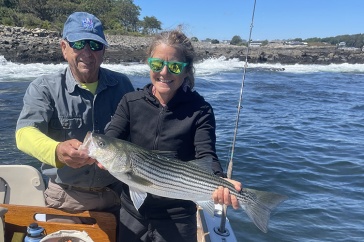
Sustaining Striped Bass
Sustaining Striped Bass
UNH study pinpoints how to help a popular New Hampshire fishery remain viable
Article
Securing New Hampshire’s Energy Future
Securing New Hampshire’s Energy Future
UNH researcher Constantine Spandagos leads interdisciplinary efforts to transform energy systems for a more sustainable future
Article
Who’s Visiting New Hampshire's White Mountains?
Who’s Visiting New Hampshire's White Mountains?
UNH researchers survey visitors in National Forest to inform USDA Forest Service resources
Article
Eleven Ways UNH is Helping Communities be Environmentally Friendly
Eleven Ways UNH is Helping Communities be Environmentally Friendly
A look at the work of UNH researchers as Earth Day approaches
Article
Lab, Reimagined
Lab, Reimagined
UNH repurposed its COVID testing lab to serve the state — and science — in new ways
Article
New Project Turns to Nature for Climate Resilience
New Project Turns to Nature for Climate Resilience
With $6M NSF grant, UNH will design Nature-based Solutions in marginalized communities
ArticleSustainability Institute Research
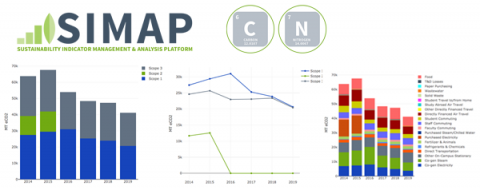
Climate Crisis &
Greenhouse Gas Accounting
UNH is home to SIMAP® (Sustainability Indicator Management & Analysis Platform) a rigorous, research-based carbon and nitrogen-accounting platform used by over 500 universities and colleges. SIMAP® offers campuses a simple, comprehensive, and affordable online tool to track, analyze, and improve campus-wide sustainability. Leveraging our SIMAP expertise and technology, our Climate Action Clinic is an exciting opportunity for students to gain expertise and experience in sought-after environmental reporting skills by working in teams to complete carbon footprint analyses for leading regional businesses, nonprofits and communities.
Equipping Students for Future Leadership
Skills, Courage, and Community Impact
Each summer, the Sustainability Fellowship pairs exceptional UNH students and post-baccalaureates with local and regional municipal, educational, corporate, and non-profit partners to work on transformative sustainability projects that are designed to create an immediate impact, offer an extraordinary learning experience, and foster meaningful collaboration. Fellows are supported by their cohort as well as an active network of partners, alumni, and the UNH team, as they emerge as the next generation of sustainability leaders.
Student Sustainability Research
Graduate students can present their research in the Sustainability Track of the annual UNH Graduate Research Conference (GRC).
Undergraduate students play a critical role in sustainability research at UNH and can present their findings at UNH's annual Undergraduate Research Conference (URC) through their college's events.
Sustainability Research Across UNH
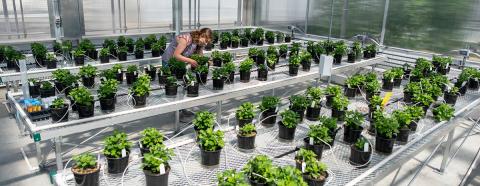
UNH's first research organization, it has been an elemental component of New Hampshire's land-grant university heritage and mission since 1887 and provides unbiased and objective research on sustainable agriculture and foods, horticulture, forest management and related wildlife, the environment, natural resources, and quality of life topics.
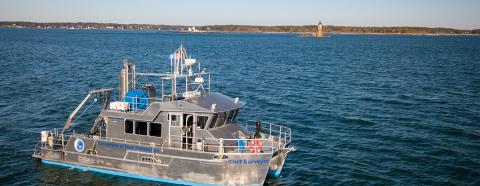
UNH’s first interdisciplinary school, designed to address today’s highly complex ocean and coastal challenges through integrated graduate education, research and engagement. As such, it serves as an interdisciplinary nexus for marine science and ocean engineering teaching and research across the University.

UNH's largest research enterprise, with opportunities to work alongside distinguished faculty on projects to explore and study the most important and inaccessible places on our planet, in our solar system, and in our universe.

Nationally recognized for its research, policy education, and civic engagement. The ideas and ambitions of the United Nations Sustainable Development Goals are a touchstone for faculty and students as we contribute to a more informed, healthy, equitable, peaceful and sustainable university, community, state, nation and planet.

Postdoctoral Diversity and Innovation Scholars
This program opens a pathway to the professoriate for highly talented, underrepresented postdoctoral scholars and is informed by best practices of established programs to increase faculty excellence and diversity.
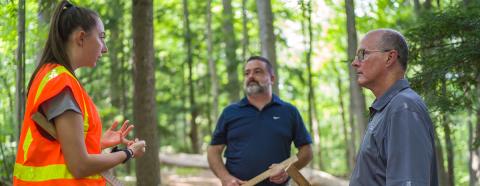
Cooperative Extension
Innovative, energetic and connected staff and volunteers develop and deliver practical, trusted education and services to meet New Hampshire’s needs. Through a long-standing partnership with NH counties, ten well-staffed UNH Cooperative Extension offices are located across the state to provide local expertise and assistance.
